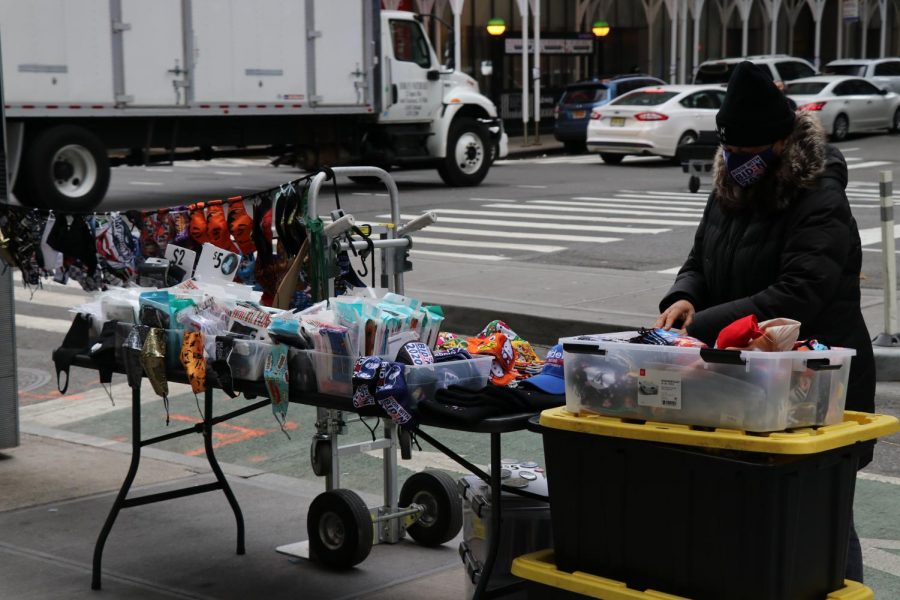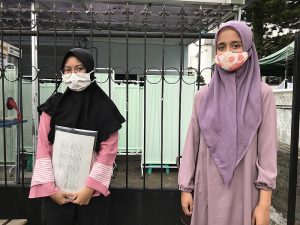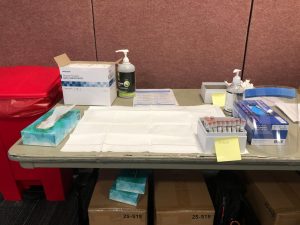Behind the Mask: The Barriers Against a Federal Mask Mandate
How a national mask mandate could affect the U.S. — and why so many are opposed
While 72% of Americans are reportedly wearing masks, many others, including the president, have questioned and undermined them.
December 4, 2020
Facial coverings have been around long before COVID-19 began spreading worldwide from Wuhan, China, in late 2019. Now, face masks have become associated with the coronavirus and 2020. Health experts and world leaders alike touted face masks’ ability to reduce the spread of infected droplets and encouraged everyone to don a mask or some sort of covering when heading outside.
But what has been accepted as a given across much of the world has been ensnared in the American political scene. President Donald Trump has openly questioned mask-wearing procedures and refused to wear a mask even after he was infected in early October. Although 72% of Americans are reportedly wearing masks whenever they’re outside the house, apprehension and misinformation surrounding facial coverings continue to permeate.
All the while, an alarmingly high number of Americans continue to be infected with COVID-19, and 260,000 Americans have already died. And although there is no guaranteed method to avoid infection besides constant physical isolation, mask-wearing remains one of the key methods for preventing infecting yourself or others when out in public.
In some states and localities, in which local enforcement would be necessary, it is going to continue to be ignored as a public safety measure. Monika McDermott, political science professor
Regardless of this advice, many continue to ignore — or even actively resist — mask-wearing. Anti-maskers tend to oppose mask-wearing by denying or downplaying the presence of COVID-19. However, the wide-ranging sentiment is also in no small part due to Trump’s aforementioned refusal to implement a mandate.
From a psychological perspective, this is an instance of “in-grouping,” where people within a certain social group — in this case, certain conservatives — tend to conform to their “in-group” beliefs.
In an already tribalistic political climate where a group leader actively tells supporters not to wear a mask, certain members of society are reinforced in their belief that mask wearing is not only non-essential but also that mandates and encouragement to wear a mask are a threat to the group itself.
Nowhere is this narrative more apparent than in the many anti-mask demonstrations and protests that have sprung up across the country since mask mandates meant to curb the spread of COVID-19 were first introduced in April.
Monika McDermott, professor of political science at Fordham University, argued that the polarization of masks has caused fewer people to wear them. According to McDermott, “in some states and localities, in which local enforcement would be necessary, it is going to continue to be ignored as a public safety measure.”
“In brief,” McDermott somberly stated, “a federal mask mandate will not work.”
While academics like McDermott have acknowledged the divisive image that mask-wearing now generates, Fordham students were overwhelmingly supportive of a federal mask mandate, if not similarly apprehensive about whether or not it would be followed. Natalie Blair, Fordham College at Lincoln Center (FCLC) ’22, thought that a mask mandate was “necessary, but there will be outrage from some.”
Matt Chen, FCLC ’22, had similar concerns. “It works on a small scale,” he said about enforcing a mask mandate. “But I think it’s almost impossible to apply in the US.” Since the pandemic, Chen has been staying at his home in Taiwan, and he doesn’t plan on returning to the United States until after a vaccine has been developed and widely distributed.
Despite the controversy surrounding a federal mask mandate, many states, cities and businesses have implemented their own mandates and guidelines to try and prevent the spread.
As of Dec. 1, 37 out of the 50 states have required mask wearing, in addition to Puerto Rico and the District of Columbia. Many large companies and corporations have required employees and customers to wear masks when present at their respective locations.
The United States may currently seem anything but united, with the tense debate surrounding mask wearing effectively showcasing this divide. But despite this apparent division, mask wearing itself has proven to be widely accepted among the general public.
Ultimately, governmental mandates lack impact when mask-wearing in the United States has become a matter of personal choice.

















